
Reaction to Jordan Peterson on Lex Fridman
This is a special episode before we get into The Gay Science walkthrough analysis, and it is something of an experiment. I know the video is not perfect, I would have formatted it a bit differently, plus the my audio is quieter than I wanted it to be. But, I may do more videos like this in the future and plan to up my game. In any case, I think the meat of the video, the critique, is pretty strong.
18 Mar 1h 10min
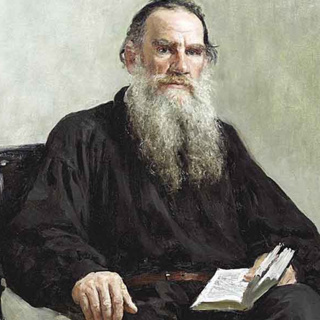
112: Leo Tolstoy - "What is Art?"
I released a song today! Go check it out on Invisible Oranges: https://www.invisibleoranges.com/slumbering-sun-together-forever/ The new single is also live anywhere that you stream music, including spotify, apple, etc. You can also visit our bandcamp to pre-order the album or purchase the single now: https://slumberingsun.bandcamp.com/album/starmonyThis episode is a discussion of my favorite essay by Tolstoy, the contents of which factored heavily into my book (The Ritual Madness of Rock & Roll) as one of my major influences on the topic of aesthetics. Tolstoy poses the problem of art, the reason why art must justify itself. Criticizing the existing conceptions of art's value, he puts forward his own theory as to art as communicative, then attacks what he considers to be the self-absorbed art of the upper class and the counterfeit art that has captured European culture. Eventually, Tolstoy comes to the conclusion that true art is aimed at the Christian vision of the unification of man. This is the conclusion of the second leg of season five.
11 Mar 1h 33min
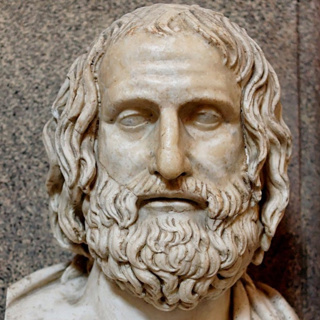
111: Protagoras, The Sophists & The Art of Rhetoric
In this episode, we consider some of the philosophically insightful sections of Nietzsche's lectures on rhetoric & the Sophists. In particular, we examine the figure of Protagoras, of whom we have little information, but who is credited with establishing the Sophists as a philosophical school focused on rhetoric. The latter half of the episode concerns the Platonic dialogue named for Protagoras, the "great speech" of Protagoras contained within, and the somewhat puzzling dispute between Protagoras and Socrates on whether or not virtue can be taught.
4 Mar 1h 14min

Nietzsche's Five Nos
Short form episode; audio version of a Youtube release. Additional content coming on Thursday!Creating a listicle of Nietzsche's ideas is always problematic, but thankfully Nietzsche occasionally provides us with one. In his notes, collected in Will to Power, Nietzsche records his "Five Nos": five ideas that he roundly rejects, and positions his philosophy as a struggle against. You will not find a more straightforward statement of Nietzsche's philosophy anywhere in his corpus. This passage remains fairly obscure, so join me in exploring this hidden gem that explains Nietzsche's philosophy in negative terms.
25 Feb 26min

Untimely Reflections #33: Craig (Acid Horizon) - Deleuze's Anti-Oedipus & Lynch's Eraserhead
A rhizomatic discussion. Craig tells us his history with philosophy, and his journey through the work of Jung, Hillman, Deleuze and others. We then discuss Anti-Oedipus and some of the core concepts, such as the Deleuzian reinterpretation of desire and the unconscious, and the body without organs. Then, as a tribute to the late, great David Lynch, we attempt a Deleuzian intepretation of Eraserhead, which of course is impossible, because both Deleuze and Lynch would agree that the interpretation of signs and symbols as a theater of the unconscious is always a misinterpretation; or, as Lynch puts it, the talking is all up there on the screen.Visit Acid Horizon: https://www.acidhorizonpodcast.com/Lepht Hand Podcast on Spotify: https://open.spotify.com/show/1E9kBe72ce15ZcqaPT8uBOCraig's Philosopher's Tarot Deck: https://www.penguinrandomhouseretail.com/book/?isbn=9781914420917
17 Feb 1h 32min
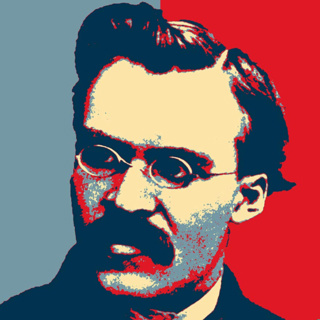
110: Nietzsche Contra Peterson - Yes, We Can Create Values
This episode is a polemic. While I have addressed Jordan Peterson's misunderstandings of the "God is dead" aphorism, or his bungling of Nietzsche's view of truth, here we address one of his most often repeated distortions of Nietzsche's philosophy. According to Jordan, Nietzsche said we can create our own values, but, in fact, this is impossible.I break down Jordan's misreading into four sections: 1) Jordan doesn't understand what Nietzsche means by "values"; 2) Jordan doesn't understand what Nietzsche means by "creating" values, 3) Jordan's problems with the "creation of values" fail, largely due to these misunderstandings, 4) Values do not need to be created by the Overman.
11 Feb 1h 16min
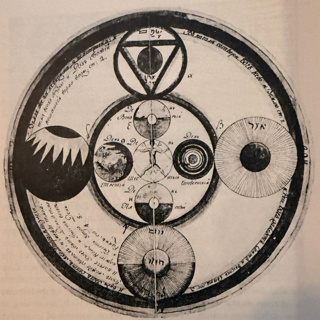
109: Carl Jung - Psychology & Alchemy, part 2
Today we continue with Psychology & Alchemy. This week, we'll spend the beginning of the episode considering the parallel between the lapis philosophorum and Christ, and the unusual claim of the alchemists that man can redeem God. The rest of the episode concerns Carl Jung's extended dream analysis of a single patient, which he found to be laden with alchemical imagery and symbolism. Episode art: The Anthropos with the Four Elements
4 Feb 1h 44min
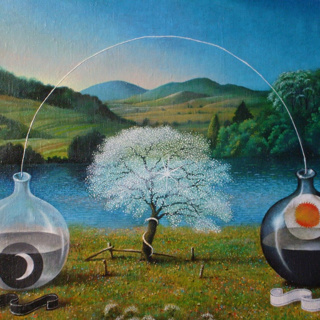
108: Carl Jung - Psychology & Alchemy, part 1
The alchemists claimed that they explained "the obscure by the more obscure, the unknown by the more unknown", and accordingly, the secrets of the alchemical work have remained largely a mystery to the public consciousness. While most think of alchemy as charlatanism, the promise to "turn lead into gold", this is far from the truth, and fails to grapple with the immense scientific, spiritual and cultural impact that alchemy has had on Western civilization. The psychologist Carl Jung was perhaps an unexpected figure to attempt to unriddle the symbols and imagery of the alchemical texts. Nevertheless, Carl Jung's volume, Psychology & Alchemy attempts to do just that, putting forward the idea that the alchemical texts are a treasure trove of psychic projection, and unconscious communication with the self. Join me for part one of our deep dive into the Jungian interpretation of alchemy, where we will learn the basic concepts of alchemy, the stages of the alchemical work, the alchemical correspondence thinking as regards the substances they worked with, and the psychological interpretation by which Jung makes sense of it all. Episode art: Henry Waniek - Alchemy
28 Jan 1h 42min





















